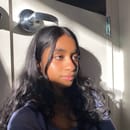
When school is out for the summer, we can only find ourselves within deep holes of mass media consumption. Leading female names in entertainment landed in the perfect intersection of releasing projects and works alongside one another, within mere weeks of each other.
After last summer’s attack by the Supreme Court on female reproductive health in the United States, this year, the entertainment industry gave some women the chance to reconnect with their identity in escaping from today’s harsh reality. Through movies, television, music, and live entertainment, hot girl summer simply became girl summer.
Jenny Han and Greta Gerwig are household names (as well as veterans of the girlhood film category) who translated the lived experience of the feminine spirit onto the screen in exceptionally contrasting styles.
Jenny Han’s approach as the author of the original books and executive producer on Season 2 of the Prime Video series, The Summer I Turned Pretty, was bathed in the same dramatization of life that comes along with being a teenage girl. Viewing television almost through the lens of female hormones magnifies the weight of events that unfold in the main character, Belly’s, life. Dissimilar to Geriwg, Han’s work on TSITP was received differently than her previous production on Season 1— Belly’s portrayal of girlhood and dramatic young love elicited a response from audiences expressing annoyance. Typical in the film industry, the sequel is laid down under the highest standard of the preceding work, opening it up for wide critique.
Gerwig had no predecessor with Barbie and was therefore given a clean canvas and full creative range.
It’s no secret to Gerwig fans that she understands and portrays female coming of age unlike any other in the modern film industry. While her work is usually representative of the white girlhood experience, her work on Barbie lay at the crossroads of all identities, directly in the heart of Barbieland. Gerwig’s contribution to girl summer was sarcastic yet sentimental, as an ode to nostalgia and struggle. Characters burst with frustration as they honored the reality of womanhood.
An experienced performer in summer stadium touring, Taylor Swift and her Eras Tour paid homage to her own career, recognizing her versatility across music genres in her extremely multifaceted spectacle of a show. In taking the audience through all of her said “eras”, she encouraged a type of public camaraderie among women where the collective human spirit thrived.
Beyonce’s Renaissance Tour took a similar approach, uplifting everyone, but especially empowering women. The Renaissance experience places a bold emphasis on concert fashion and self-love, as she sings “comfortable in my skin, cozy with who I am”. Her performances were received (and performed) across generational lines, as people of all ages attended her shows while she featured her own daughter, Blue Ivy, on stage during the show.
In coming together publicly as a community and lovers of the same media, a type of in-person response that has not been seen arguably since the start of the pandemic, this summer celebrated all that it is to be a woman.


